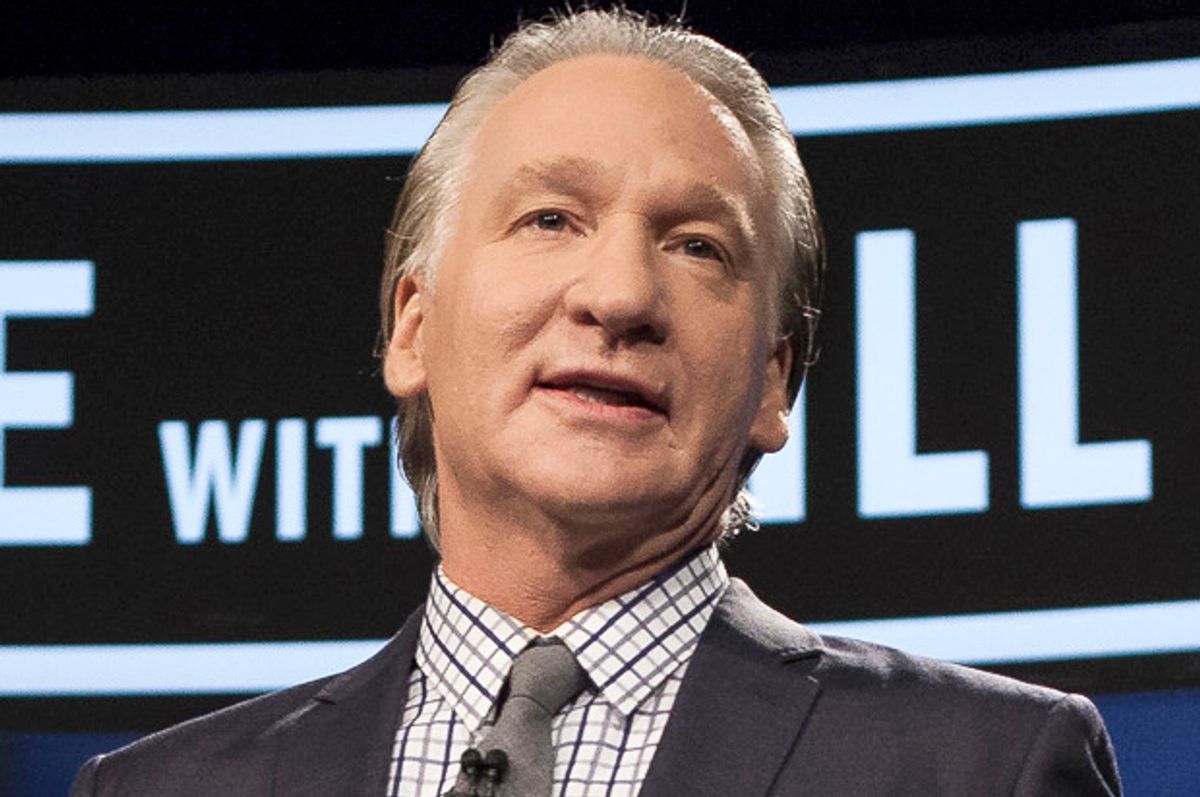Bill Maher failed to win over the audience on “Jimmy Kimmel Live” yesterday, when the "Real Time" host and longtime political satirist opted for anger and self-righteousness over the day’s shocking news of the Paris terror attack on the office of satirical weekly Charlie Hebdo that left 12 people dead. Maher lost the audience’s goodwill on several occasions when he insisted on playing the dogmatic truth-teller rather than the irreverent comedian.
Kimmel tried throughout the segment to steer the conversation toward common ground—satire is valuable and necessary, the journalists were brave and sacrificed their own safety to uphold the principles of free speech—but the audience froze Maher out during his biggest moments.
Maher’s first misfire, a pop culture zinger about the frequency of Islamic extremist terrorist attacks, resulted in tepid laughs from just a few corners of the audience. “It's like ‘Groundhog Day,’ except if the groundhog kept getting his head cut off,” he said, a joke that manages to be at once trivial and brutal. Maher built a little goodwill by praising the slain journalists: “Their balls were bigger than Gérard Depardieu.” Kimmel seized eagerly on the theme of the staff’s bravery, hoping perhaps to get the audience back with appreciation for the sacrifices the satirists made for free speech. It could have worked, if Maher hadn’t steered the talk away from the victims and back to himself.
“I’m a proud liberal” was met with cheers and applause from the presumably like-minded audience, but Kimmel warned them, “he’s about to turn on you.” And then Maher reminded them that his aim last night wasn’t to be funny, it was to prove he’s right: “I’m not turning on them. I’m asking them to turn to the truth,” sounding eerily like the religious extremists he lampoons in his own work.
Maher got laughs for denouncing the U.S. as a “pussy nation” and applause for his line that “there are no great religions, they’re all stupid and dangerous,” both classic irreverent Maher approaches that his fans were sure to appreciate. But he lost the audience when he insisted that the terror attacks were tacitly supported by mainstream Muslim culture.
“I know most Muslim people would not have carried out an attack like this. But here's the important point. Hundreds of millions of them support an attack like this. They applaud an attack like this. What they say is, we don't approve of violence, but you know what, when you make fun of the prophet, all bets are off,” Maher said.
Kimmel pushed back with gentle incredulity: “You really think hundreds of millions of Muslim support this?”
“Absolutely,” replied Maher. “That is mainstream in the Muslim world, that when you make fun of the prophet, all bets are off. You get what's coming to you.”
No response from the audience to this line of thought. “Again, I’m the liberal in this debate,” Maher insisted through the awkward silence.
Even an anecdote from his anti-segregationist upbringing—his father telling him “we’re with Kennedy”—garnered only a smattering of applause in a telling moment of residual hostility that suggested the audience wasn’t ready to gloss over anti-Muslim rhetoric just because Maher still disapproves of racial segregation, a fairly low bar to clear in Hollywood in the 21st century. Maher only won them back with some help from sidekick Guillermo Rodriguez after Maher said he stood on the side of the oppressed, including Mexicans. “Bill Maher is for Mexicans, everybody!” Kimmel closed out the segment to applause and cheers that felt like more like an expression of relief from the audience than appreciation for the guest. In the age of streaming, when some have argued that the studio audience might be obsolete, last night was a good argument for its enduring value: It's a useful sounding board for the rest of us at home.

Shares